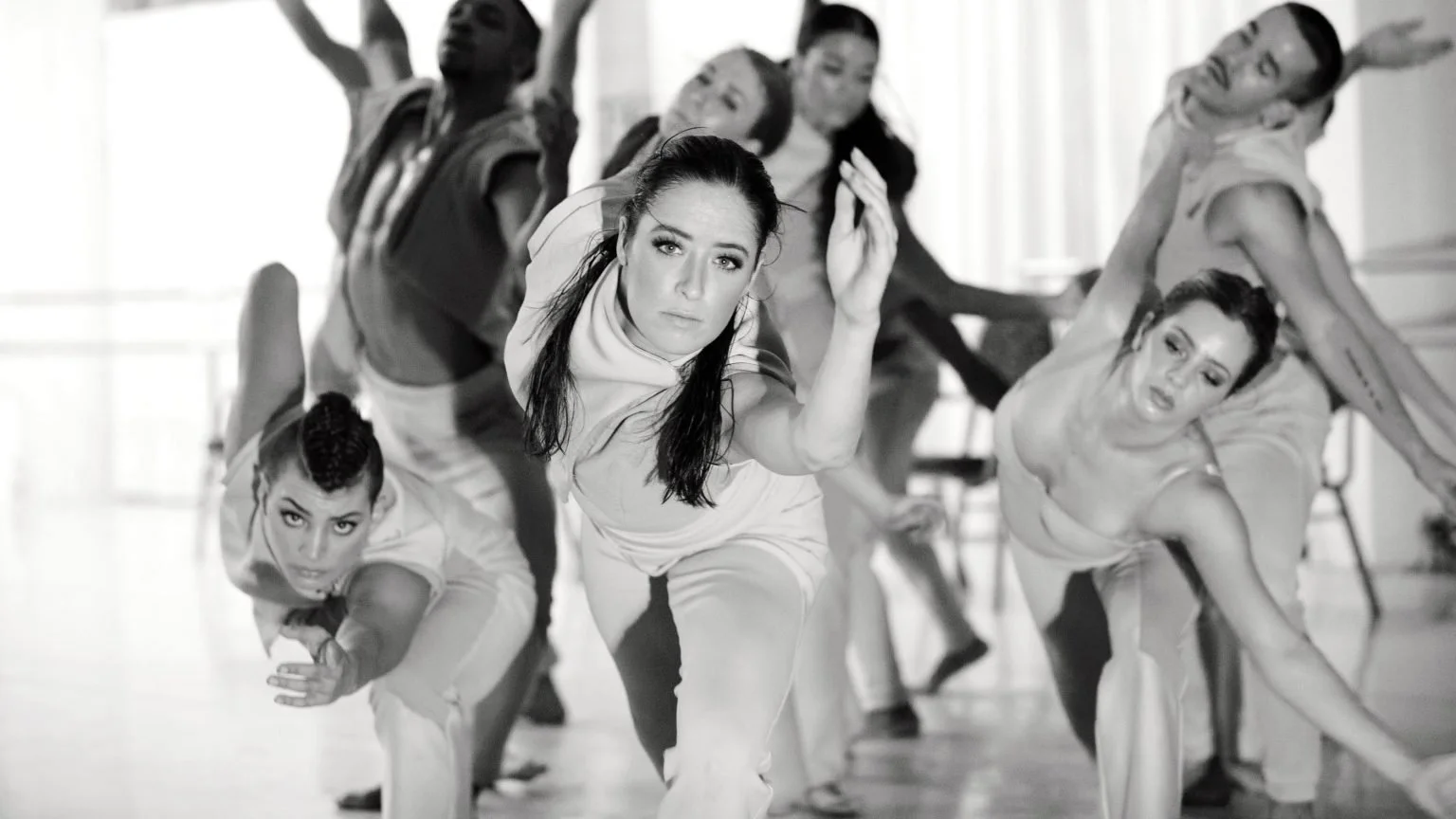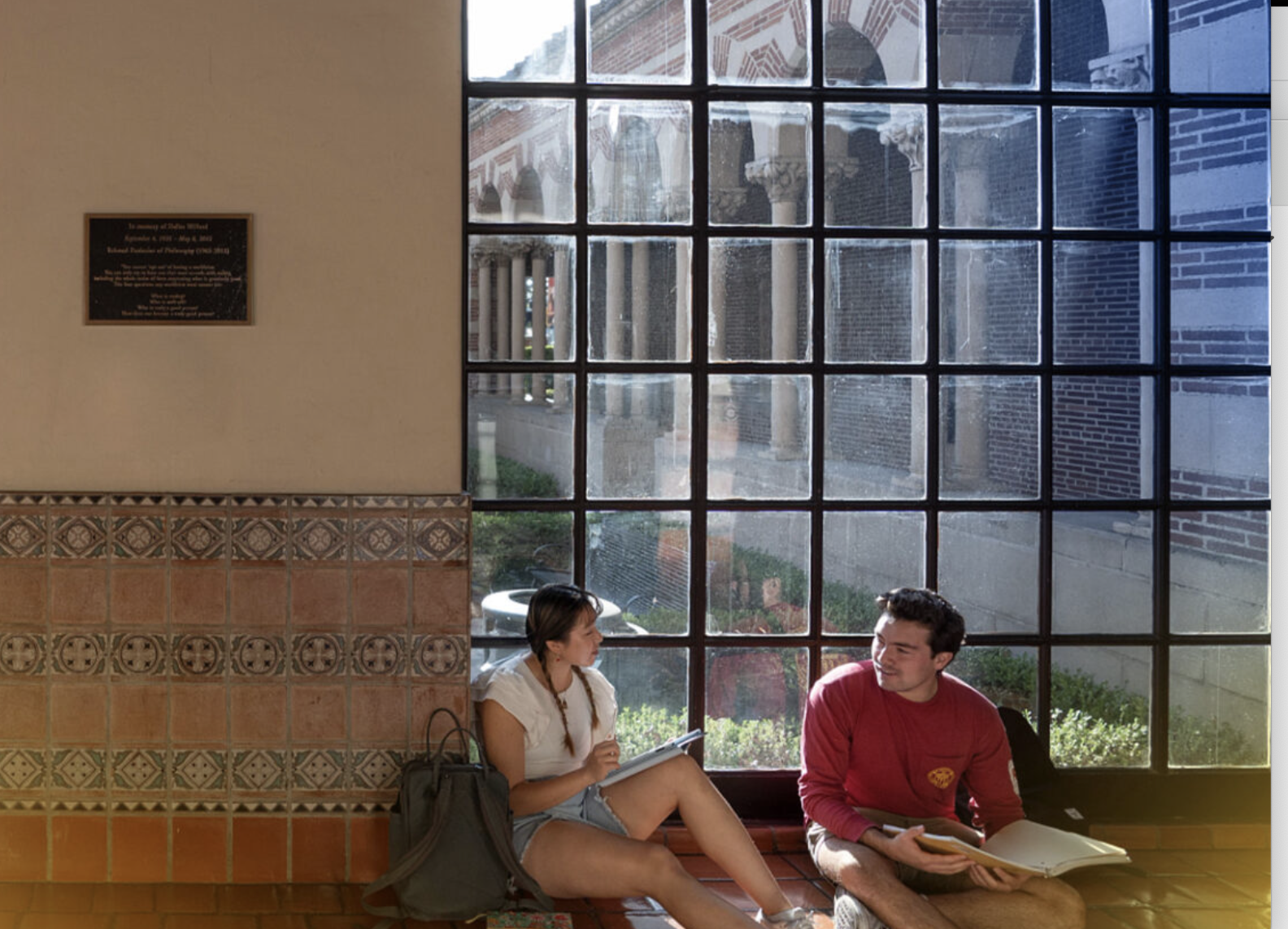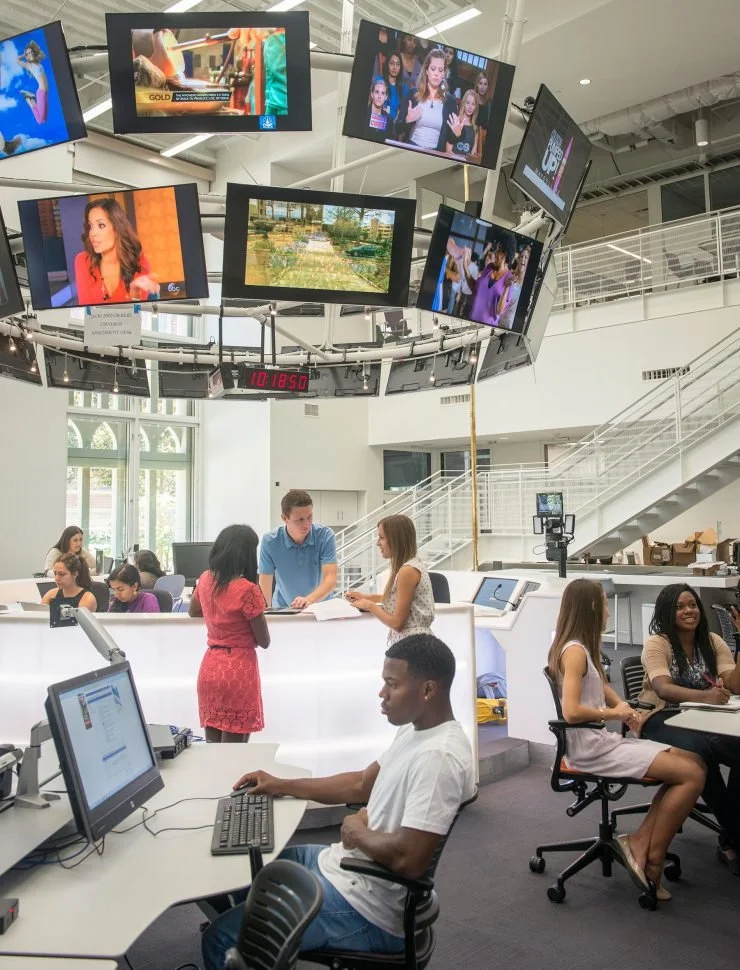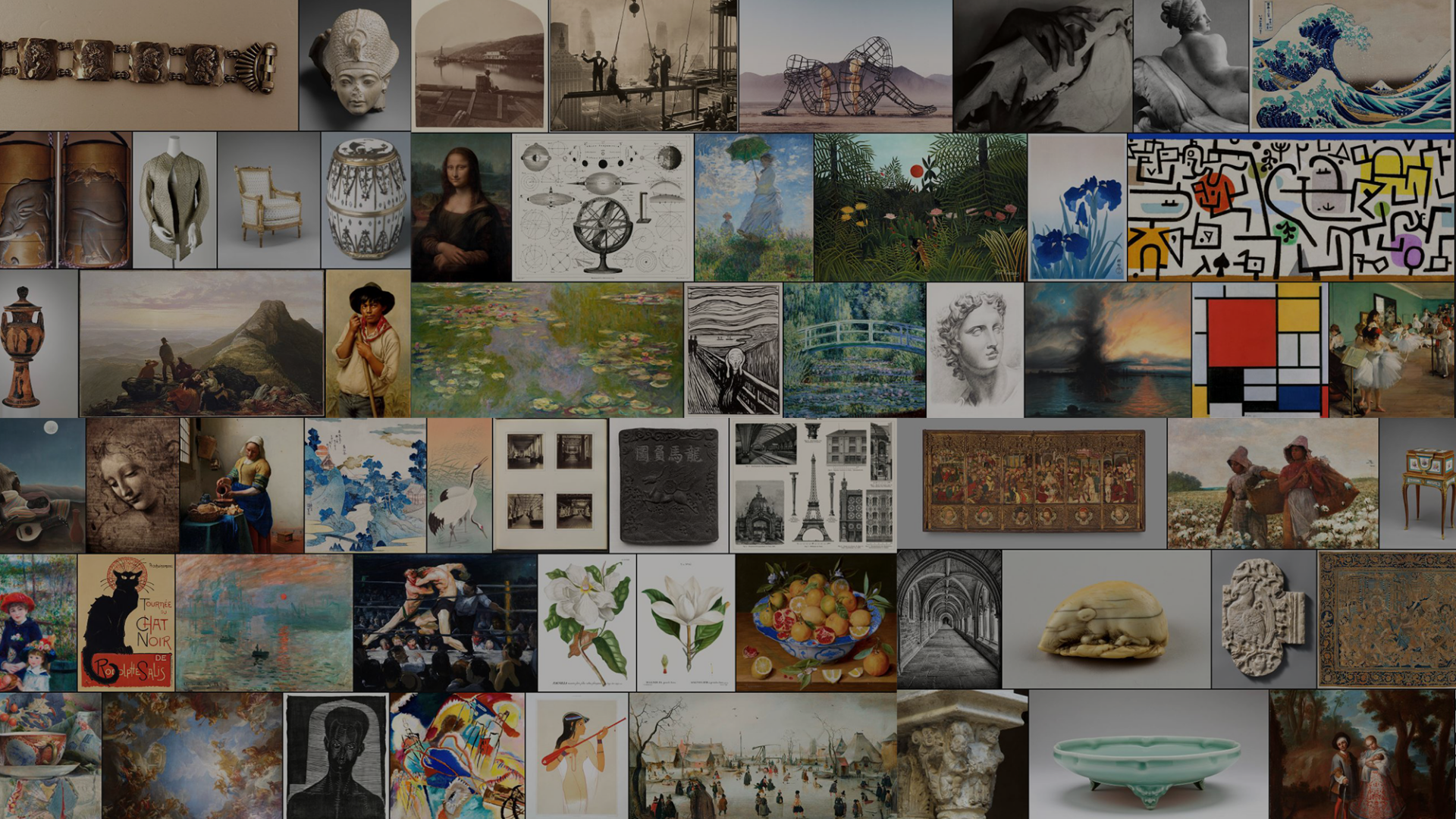Best GEs at USC
by Maya Lopez ‘26
The dreaded GE requirements: a set of classes in 8 different categories that every USC student must satisfy by graduation. Sometimes the GE requirement can be annoying because it takes up space in your schedule that you could use to take other classes. However, if you approach it with an open mind, GEs can help you learn about interesting topics you otherwise wouldn’t have explored and can be a much needed GPA boost. Some people are lucky enough to be exempt from some of the requirements if they took AP or IB classes in highschool, so check with your academic advisor before registering. As we enter a new semester I’ve compiled a list of some of the best GEs to take in each category. Hope this helps!
GE A: The Arts
Denae Luce graduated from USC in 2017 with a minor in dance | Photo by Juliana Ucar
DANC 280: Introduction to Dance as an Art Form
DANC 280 is a class offered through the Glorya Kaufman School of Dance. The class provides students with an interdisciplinary exploration of dance as an aesthetic and art. This class approaches topics such as poetry, cinematic arts, and sports through a dance lens. DANC 280 is a gateway to a dance minor. Students who took this class say teachers were flexible about deadlines, and, while there is a lot of content to cover, the workload was never overwhelming. Exams in this class are open notes and written assignments are relatively easy and open ended. Also, if you aren’t experienced in dance, no need to worry! No dancing is required, and this class is designed for non-majors.
MUSC 210: Electronic Music and Dance Culture
Think you have what it takes to be the next it's murph? Take MUSC 210 as a GE A to get an introduction to EDM. MUSC 210 covers the origins and development of EDM as it relates to disco, house, techno rave, and electronica focusing on cultural and technological influences. Students learn how to analyze EDM and identify different technologies used in music. This class is very popular because of its well known guest speakers and energetic professor, who is known to, on occasion, turn down the lights and play EDM music to simulate the feel of a club.
GE B: Humanistic Inquiry
photo credit: USC Dornsife
AMST 205: Introduction to American Popular Culture
AMST 205 examines the relationship between U.S. national culture, race, and popular culture. Students in AMST 205 learn about cultural infrastructures and how that informs what is “popular”. This class assigns a lot of reading, but don’t worry, it's all reviewed in lecture. If you aren’t a test taker, this class is for you because there are no exams (midterm or final). AMST 205’s coursework includes 2 projects and some reading reflections. This class is great for someone who needs some flexibility in their schedule because attendance is not mandatory and students report the most important part of the class being able to understand the readings.
ENGL 174: Reading the Heart: Emotional Intelligence and the Humanities
ENGL 174 offers a deep dive in emotional intelligence through literature. It is well known that reading is one of the best ways to foster empathy, and this class does just that. If you take this class, expect lots of reading and a bit of writing. ENGL 174 coursework includes 2 projects and some paragraph responses; there are no tests! This is a great class to take if you’re interested in human relationships and psyche and are looking to read more.
GE C: Social Analysis
photo credit: USC Dornsife
PSYC 353: Close Relationships
I’ve had my eye on this class since I started at USC last year. Anyone can take PSYC 353, granted they fulfill the PSYC 100 requirement. In this class, you learn about the different types of relationships people have and the scientific, historical, and cultural contexts behind them. Students who take this class report having a completely new perspective on life and recommend it because of how applicable it is.
ANTH 202: Archaeology: Our Human Past
Unlock your inner Indiana Jones with this Anthropology GE C. ANTH 202 is all about how archaeology informs us about the humans who came before us. In this class you’ll learn about the origins of humanity and ancient civilizations. Coursework includes 2 critiques, 1 midterm, a research paper, and a final exam. Attendance isn’t mandatory except for a 50 minute discussion taught by the professor. All lectures are recorded online, and there is quite a bit of out of class work. Students are only expected to attend a study hall 3 times before the midterm and 3 times after, so the class is very low-commitment on attendance.
GE D: Life Sciences
photo credit: USC
GERO 315: A Journey into the Mind
GERO 315 is a great class to take if you’re interested in getting an introduction to gerontology. This class takes a multimedia approach to teach students about the mind, brain, stress, and knowledge. It is very accessible for non-stem majors because all exams are open note, and it doesn’t have a lab.
PSYC 100: Introduction to Psychology
Be warned – this class is extremely difficult to get into; it is one of the first classes to fill up when course registration begins. If you’re an underclassmen, don’t expect to get in. PSYC 100 is a great GE D because it's a prerequisite for some other cool GE classes, including Close Relationships, which I reviewed earlier. This class covers the basics of psychology, including personality, mental illness, and child development. It is well organized, so while there's a good amount of work, it never feels like you’re doing too much at once.
GE E: Physical Sciences
photo credit: USC Dornsife
ASTR 200: Life in the Universe
ASTR 200 explores how the Universe came to exist and what our place is in the Universe. This class defines life and discusses the possibility of other forms of life in the solar system. This is a great GE E as it is designed for non science majors.
CHEM 205: Chemical Forensics: The Science, and its Impact
CHEM 205 is one of the most popular GE Es. Classes are optional and only 50 minutes long. Additionally, all tests are open note and there isn’t too much work. This isn’t the easiest GE E but definitely not the hardest. CHEM 205 introduces the scientific principles of forensic approaches to investigating crimes and its impact on law, culture, and media.
GE F: Quantitative Reasoning
photo credit: Annenberg Foundation
COMM 301: Empirical Research in Communication
COMM 301 examines quantitative research methods such as survey, experimental, and content analysis research designs. Students practice evaluating quantitative research and eventually design and execute their own research projects. While all GE Es require some math, there isn’t too much in COMM 301 because most of it is done on the computer.
GE G: Equity in a Diverse World
photo credit: USC Thornton
*GE G and H are unique because some of them can also satisfy A, B, and C requirements. All the GE Gs and Hs recommended below satisfy two requirements to maximize your schedule.
MUSC 320: Hip-Hop Music and Culture
I personally know some people who took this class and, while taking it, they could not stop talking about how much they loved the class. MUSC 320 teaches the history of hip-hop music, and social, political, and cultural issues relating to hip-hop. This is a unique GE as it counts for GE A and G, there are no exams, and only a few essays. Students who’ve taken this class have enjoyed perks like free Rolling Loud tickets and a visit from guest speaker Rae Sremmurd.
PHIL 174: Freedom, Equality, and Social Justice
I took this class my freshman year, and it was extremely beneficial and not too stressful. PHIL 174 explores the nature of justice and how conflicting ideas are balanced within a just society. The class is extremely relevant and helps students become more well read on important social issues. Your grade in the course is determined by attendance, one midterm paper, five homework assignments, and an in-class essay. This is also a great class because it counts for GE G and B.
GE H: Traditions and Historical Foundations
photo credit: USC Dornsife
AHIS 120: Foundations of Western Art: Prehistoric to Renaissance
I actually took AHIS 120 this past semester, and I have nothing but great things to say about the class. First off, it counts for GE A and H, so if you’re looking to free up space in your course plan, this is a great way to knock off two requirements. I’ve learned so much in this class and I now feel confident enough to participate knowledgeably in discussions about art analysis and history. There are no exams in this class and all the written work is relatively easy. This class is fully about learning; the professor doesn't waste time making it about grades. There are some art history majors in the class, but for the most part, it's non-major students, so it's accessible to everyone.
AMST 301: America, the Frontier, and the New West
MST 301 is a great GE H because it also satisfies a GE B requirement. This class offers an introduction to the intersection between American political, cultural and social life. This class is very manageable and professors are understanding and care about the wellbeing of students. Last year, the final was to go watch a movie in theaters over Thanksgiving break. The lectures are engaging and well planned out, and while you learn a lot in this class, the workload is manageable.
Want more from Trojans 360?
Visit Trojans 360 on Facebook & Twitter to stay up to date with more student content! You can also Ask A Trojan an anonymous question, and we’ll try to answer it in a future post. And don’t forget to follow us on Instagram!
Trojans 360 is USC’s official student-run blog. Content created by students, for students.









